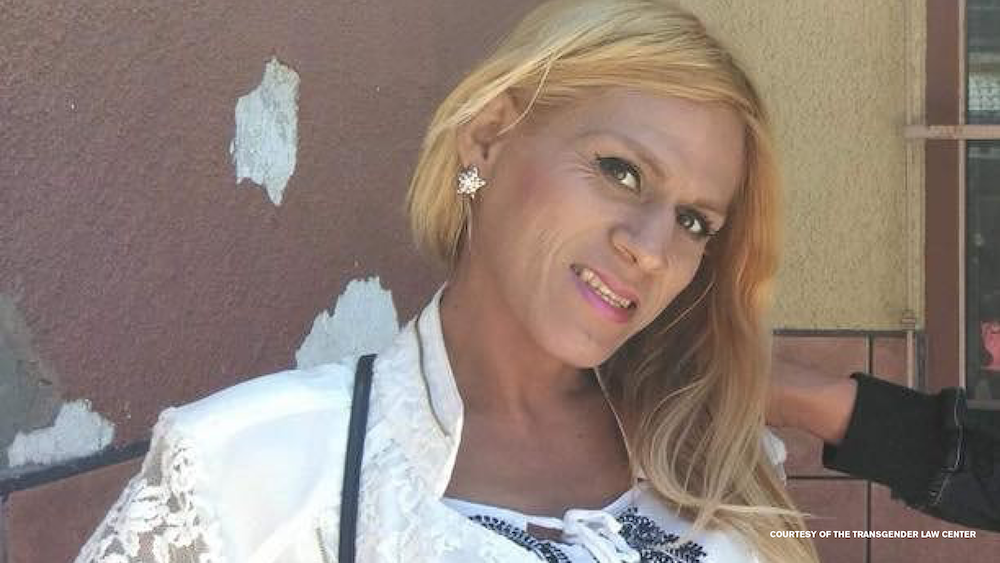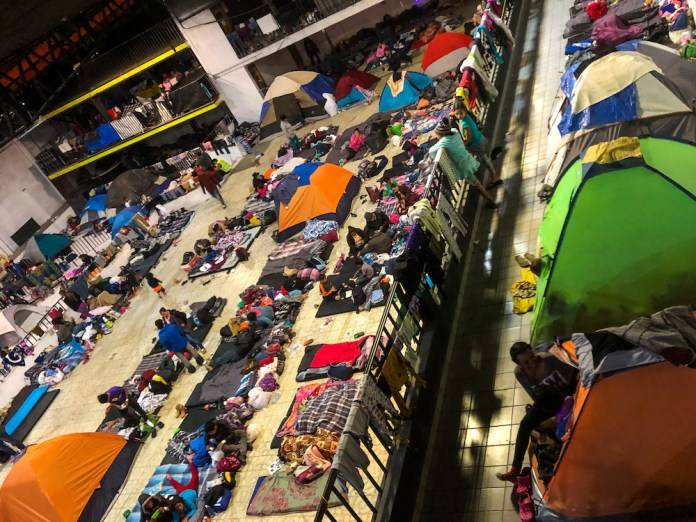Transgender and other LGBTQ people who joined the migrant caravan to the US border seeking asylum are having a hard time finding sponsors to live with in the United States while their cases are being heard. Instead, most are languishing in a dangerous custody and detention system, which saw the death of 33-year-old trans woman Roxsana Hernandez in the spring (evidence suggests she was beaten while in custody), and of a seven-year-old girl, Jakelin Caal, more recently.
“In the latest exodus, which I accompanied, there were at least 53 trans women,” Elaina Vermeulen, a transgender detention release specialist for the Santa Fe Dreamers Project, told me over the phone. “There are at least 100 GLBTQ people already being detained. With Roxsana’s death and what we’ve seen on the ground, this is an urgent situation.” The migrants are fleeing violence, bigotry, and economic distress in their countries of origin.

Women who obtain sponsors can be released into their care while their case works its way through the legal system. The women’s asylum cases have been described as a “slam-dunk” by Santa Fe Dreamers Project Executive Director Allegra Love in a Buzzfeed article last month, with a very high success rate.
It can take several months, though, and sponsorship requires adequate housing and financial support. Sponsors must be legal permanent residents or US citizens with a steady source of income and no criminal record. LGBTQ+ competencies and an awareness of trauma-informed care are also advantages, but you don’t have to be LGBTQ. To sign up to apply to be a sponsor or host LGBTQ asylum-seekers, or for more information, see this Google doc or email info@santafedreamersproject.org directly.
“We’re trying to build as big a network of potential sponsors as we can, so we can pair the individuals and have them released,” Vermeulen said. “We’re also looking for accompaniment teams and support networks that can help with things like getting groceries, making appointments on time, and acclimating to their new environment.”
The San Francisco Bay Area has a very favorable infrastructure for housing the women, Vermeulen said. Besides a large LGBTQ community, we have one of the most accessible immigration courts in the country—”immigration courts in places near the border like El Paso are overwhelmed,” Vermeulen told me. “Even with positive support, there’s a 90 percent case rejection rate”—as well as accessible health care through Healthy SF and other institutions that can help address the health and trauma needs of the women.
(We also have very rich corporations with huge gay contingents that could potentially come to the aid of members of their community in distress.)
Vermeulen is blunt about the responsibility that comes with committing to sponsorship. “You’re dealing with a group of people who need a lot of support and care… It’s not like adopting a kitten — you’re taking an actual human being with individual needs,” she told Buzzfeed in an interview. Vermeulen told me, “A lot of women don’t know they’re HIV positive or about other health issues until they’ve received some care. These are women who have been through a lot. We received an outpouring of support for our work, but now we need favorable sponsors to take the next step and help,” Vermeulen said.







